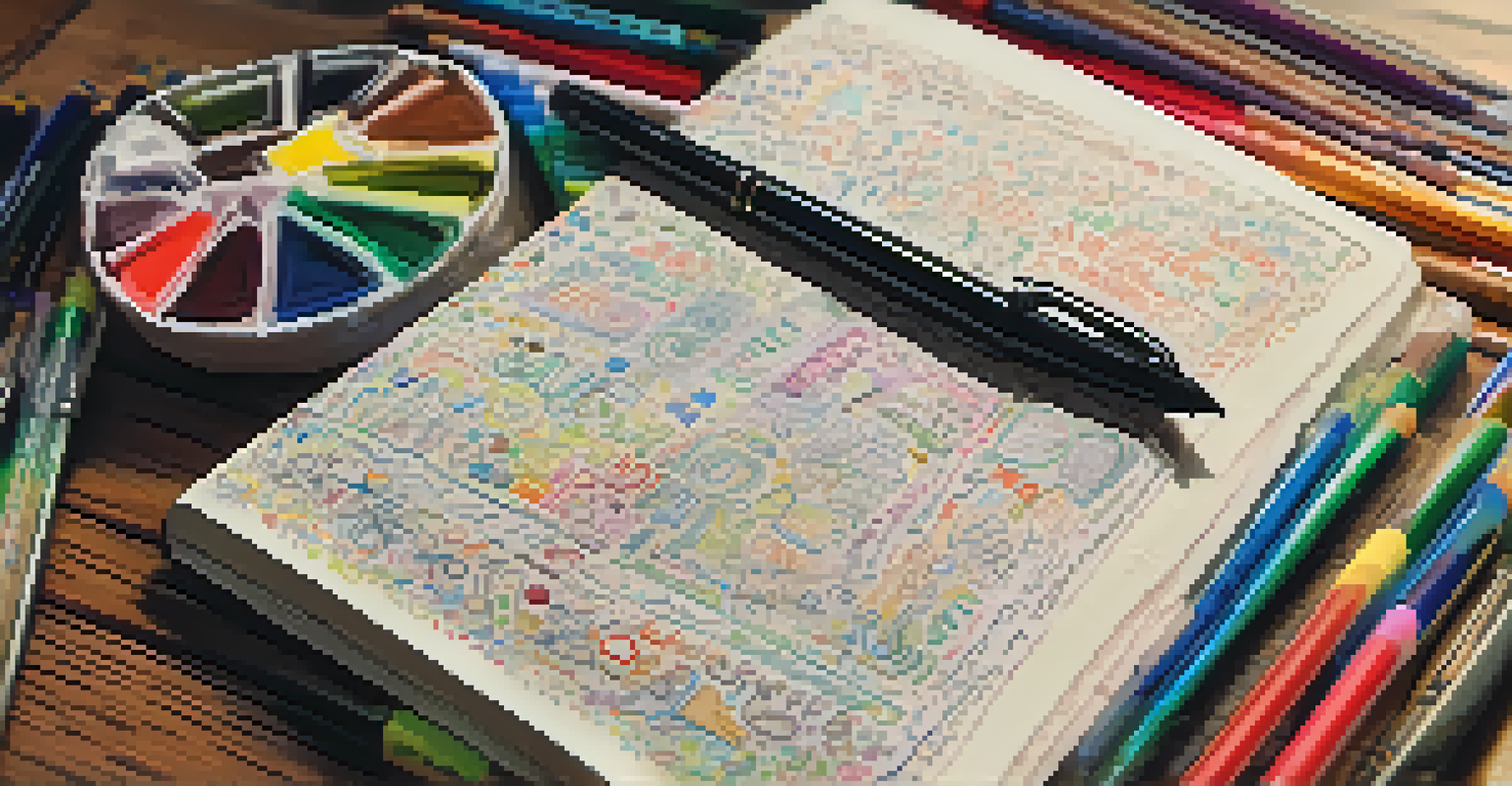Journaling Techniques: Finding Your Unique Writing Style

Understanding the Importance of Journaling
Journaling isn't just about putting pen to paper; it's a powerful tool for self-discovery. By writing regularly, you can gain insights into your thoughts, feelings, and experiences. This can lead to a greater understanding of yourself and your motivations.
Journaling is like whispering to one's self and listening at the same time.
Moreover, journaling can serve as a stress-relief mechanism. When you’re feeling overwhelmed, jotting down your worries can help you declutter your mind. It's like having a heart-to-heart with yourself, allowing you to process emotions in a safe space.
Finally, journaling can enhance your writing skills. As you practice expressing yourself, you’ll find your unique voice. This gradual evolution is essential in finding a writing style that feels authentic to you.
Choosing the Right Journaling Method for You
There are various journaling methods, each catering to different preferences and needs. For instance, bullet journaling is great for those who enjoy organization and structure. It's like a planner and diary rolled into one, helping you track goals while expressing your thoughts.

On the other hand, free writing allows for a more spontaneous approach. You simply write whatever comes to mind without worrying about grammar or structure. This method can be liberating and is perfect for tapping into your creativity.
Journaling for Self-Discovery
Regular journaling helps you gain insights into your thoughts and emotions, facilitating personal growth.
Lastly, reflective journaling focuses on processing experiences and lessons learned. By reflecting on daily events, you can turn ordinary moments into meaningful insights. Finding the right method can make journaling feel more enjoyable and impactful.
Setting the Mood: Creating Your Ideal Writing Space
Your environment plays a significant role in how you journal. A cozy nook with good lighting and comfortable seating can set the stage for creativity. Think of it as your personal sanctuary where you can escape the hustle and bustle of daily life.
The more you write, the more you discover who you are.
Incorporating soothing elements like candles, plants, or calming music can enhance your journaling experience. These additions can help you relax, making it easier to express your thoughts freely. The goal is to create a space that inspires you to write.
Don't forget to eliminate distractions! Turning off notifications and finding a quiet time during your day can help you focus. When you immerse yourself in your writing space, you'll find that your unique style begins to flourish.
Exploring Different Writing Styles and Techniques
Every writer has a distinct style, and journaling allows you to explore that. For instance, some prefer a poetic approach, weaving emotions into lyrical prose. Others might choose a straightforward narrative style, favoring clarity and brevity.
Experimenting with various techniques can help you identify what resonates with you. Try prompts, dialogues, or even sketches alongside your writing. This blend of formats can push you to think outside the box and discover your voice.
Choose Your Journaling Method
Finding the right journaling method, whether it's bullet journaling or free writing, can enhance your experience and creativity.
Remember, there's no right or wrong way to journal. Your writing style will evolve as you explore different techniques, so embrace the journey. Each entry is a step closer to uncovering your unique expression.
Incorporating Prompts to Spark Creativity
Sometimes, staring at a blank page can be daunting. That's where journaling prompts come in handy! These prompts can serve as gentle nudges, guiding your thoughts and igniting inspiration. For example, you might write about your favorite childhood memory or describe a dream you once had.
Using prompts can also help you delve deeper into specific topics. They encourage you to reflect on your beliefs, values, and experiences. This process not only enhances your writing but also fosters personal growth.
Feel free to get creative with your prompts! Consider writing a letter to your future self or making a list of things you’re grateful for. The more varied your prompts, the more dynamic your writing style will become.
Embracing Imperfection in Your Journal
One of the most liberating aspects of journaling is the freedom to be imperfect. Many writers grapple with self-criticism, which can stifle creativity. Remember, your journal is a private space where you can let go of perfectionism and write honestly.
Embracing imperfection allows you to explore ideas without the pressure of making them 'perfect.' It's like doodling in the margins of a textbook—it's all about the process, not the product. This mindset can lead to surprising discoveries in your writing.
Embrace Imperfection in Writing
Accepting imperfections in your journaling encourages honest expression and can lead to unique discoveries in your writing style.
So, don’t be afraid to write messy thoughts or unfinished ideas in your journal. These raw expressions are often the seeds of your unique writing style, waiting to be cultivated into something beautiful.
Reviewing and Reflecting on Your Journal Entries
Regularly revisiting your journal entries can be a powerful practice. As you read through past thoughts and feelings, you may notice patterns or themes emerging. This reflection can deepen your understanding of your journey and progress.
Additionally, reviewing your entries can highlight your growth as a writer. You might find that your style has evolved over time, which is a sign of development. Acknowledging these changes can motivate you to keep writing and experimenting.

Consider setting aside time each month to reflect on your journal. This can be a rewarding way to celebrate your writing journey and recognize your unique voice. After all, journaling is as much about the process as it is about the words on the page.